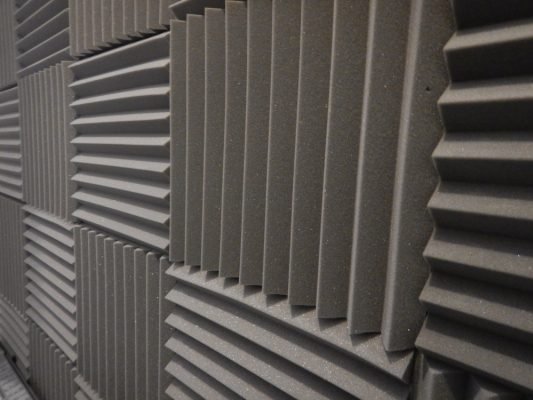The quality of air and sound in our indoor environment significantly influences our comfort and health. We’ve all experienced the calming effect of a whisper-quiet HVAC system – it’s almost like it isn’t even there. One of the critical components in achieving such serene operation is the use of sound attenuators HVAC systems. Understanding these elements will help you appreciate the quiet comfort your HVAC system provides, and it could also assist you in making informed decisions when purchasing new equipment.
What are Sound Attenuators in HVAC?
Sound attenuators, also known as silencers, are used in HVAC systems to reduce noise caused by airflow. These devices are designed to decrease sound power levels while allowing air to pass through without significant resistance. The ultimate goal of a sound attenuator is to create a quiet, comfortable indoor environment.
There are different types of sound attenuators, including duct silencers, blow-off silencers, fan silencers, and more. Each of these is designed to address specific types of noises in various parts of the HVAC system.

How Do Sound Attenuators Work?
Sound attenuators work by disrupting the path of sound waves. These devices typically contain a series of baffles. As the sound waves encounter these baffles, they bounce around and lose energy, causing the volume of the sound to reduce.
The amount of sound reduction provided by a sound attenuator depends on several factors, including the size and shape of the baffles, the materials used, and the frequency of the sound waves. Designing effective sound attenuators requires a deep understanding of acoustics and the specific sound characteristics of HVAC systems.
But how do these sound attenuators relate to your daily life? How do they affect the performance of your HVAC system? And how can they contribute to a better home environment? We’ll explore these questions in the sections that follow.
Now that we’ve introduced the basic concept of sound attenuators HVAC, let’s delve deeper into the nitty-gritty of their functioning and benefits.
Make sure to also check out our previous comprehensive guides to know more about how HVAC systems work, why duct cleaning matters, and the role and importance of a certified HVAC technician. With Cool Air UAE, you’re never left in the dark about your air conditioning system. We believe in empowering our customers with knowledge!
Why Do We Need Sound Attenuators in HVAC Systems?
Imagine trying to enjoy a peaceful night’s sleep, but the humming noise from your HVAC system keeps disturbing you. Or you’re trying to concentrate on your work from home, but the constant sound of the air conditioning unit is a distraction. This is where the importance of sound attenuators comes into play.
A sound attenuator is your shield against noise pollution in your own home. They are used in HVAC systems to reduce noise produced by airflow and equipment vibration. A quieter HVAC system creates a more comfortable and peaceful living environment.
Moreover, HVAC systems without sound attenuators may not just disrupt your peace, they can also have negative effects on your health. Long-term exposure to noise pollution can lead to increased stress levels, poor concentration, productivity loss, and even hearing loss in severe cases. By reducing noise, sound attenuators can contribute to a healthier home environment.
Additionally, the use of sound attenuators in HVAC systems can enhance the overall performance of the system. By reducing the noise and vibration, these devices can help to extend the lifespan of your HVAC equipment.
Types of Sound Attenuators
Sound attenuators come in various types and designs, each serving a specific purpose and tackling a different kind of noise. Here are some of them:
- Duct Silencers: These are designed to reduce noise in the ductwork. They are typically used in commercial and industrial settings where there’s significant noise from the HVAC system.
- Blow-off Silencers: These are used to reduce the noise caused by high-pressure gases or steam escaping into the atmosphere.
- Fan Silencers: These are used to reduce noise from fans in the HVAC system. They can be particularly useful in residential settings.
Each type of sound attenuator has its specifications and needs to be chosen based on the particular requirements of the HVAC system.
While these sound attenuators are essential, it is equally important to have a properly functioning and maintained HVAC system. Check out our trusted guide on AC repair and our comprehensive guide to AC installation in Dubai for more insights. Understanding the bigger picture of your HVAC system can help you make more informed decisions.
Choosing the Right Sound Attenuator
Choosing the right sound attenuator is crucial to get the best results. The right choice depends on the specific needs of your HVAC system and the type of noise it produces. For instance, if the majority of noise comes from the ductwork, a duct silencer would be the best fit. If it’s the fan that’s noisy, then a fan silencer is the better option.
Besides, the size of the attenuator should be compatible with your HVAC system. The wrong size could lead to inefficiencies in noise reduction, or even worse, it could cause blockage in your HVAC system.
To choose the right sound attenuator, it’s always best to consult a professional. At Cool Air UAE, our certified HVAC technicians can help you make the right choice based on the specific needs of your HVAC system. Take a look at our post on the role and importance of a certified HVAC technician for further information.
Installing and Maintaining Your Sound Attenuators
After picking the right sound attenuator, the next step is the installation. It’s crucial to make sure the sound attenuator is installed correctly, as an improper installation can lead to inefficiencies and potential damage to your HVAC system.
Installation typically involves placing the sound attenuator at the source of the noise, usually near the fans or within the ductwork. The positioning depends on the type of sound attenuator and the design of your HVAC system. Again, it’s recommended to hire a professional HVAC technician for this job to ensure everything is done right.
Maintaining your sound attenuators is also essential. Regular checks and cleaning can help keep them in good working condition, ensuring they effectively reduce noise and last longer. They should be inspected at least once a year, or more often if recommended by the manufacturer or your HVAC technician.
To give you more insight into what to consider when dealing with HVAC, we have a comprehensive guide to AC installation and an article discussing why duct cleaning in HVAC matters that you might find interesting.
Effect of Sound Attenuators on Energy Efficiency
The use of sound attenuators in HVAC systems not only reduces noise levels but also contributes to energy efficiency. By ensuring that the air flows smoothly and without interruptions, they reduce the energy needed to push the air through the system.
This increased efficiency can lead to lower energy bills and a reduced carbon footprint, making sound attenuators a good investment not only for comfort but also for cost savings and environmental sustainability.
That said, the efficiency of a sound attenuator can vary based on its design, the materials used, and the specific HVAC system it is installed in. This is another reason why it’s essential to work with a knowledgeable HVAC technician who can recommend the right products for your system.
We delve more into energy efficiency in our article understanding air conditioning sound: more than just noise. Feel free to check it out for more information.
Sound Attenuators and Indoor Air Quality
Beyond noise reduction and energy efficiency, sound attenuators play an essential role in maintaining indoor air quality. Because they help air move smoothly through your HVAC system, they can prevent dust, dirt, and other particles from building up in your ductwork. Accumulated debris in the ducts can affect the air quality in your home or business, leading to allergies, respiratory problems, and other health issues.
Sound attenuators can also reduce the risk of mold and mildew growth. When air flows smoothly and efficiently, it minimizes the risk of condensation build-up inside your ducts – a common culprit of mold growth. If you’re interested in the topic of indoor air quality, we have a comprehensive guide on why duct cleaning matters in HVAC, which you may find insightful.
Sound Attenuators and Comfort
The most apparent benefit of sound attenuators is an increase in comfort. By reducing HVAC system noise, they create a quieter, more enjoyable environment. Whether you’re in a home or office setting, minimizing HVAC noise can contribute to a peaceful atmosphere and help to improve focus and productivity.
In Conclusion
In conclusion, sound attenuators HVAC are a valuable addition to any HVAC system. From reducing noise and improving energy efficiency to helping maintain indoor air quality and overall comfort, the benefits are clear.
For any installation, maintenance, or questions regarding sound attenuators, we recommend consulting with a certified HVAC technician to ensure the best results.
Remember, at Cool Air UAE, we’re always here to provide insights and offer top-quality services for your air conditioning needs. So, if you need help with your HVAC system or want to learn more about air conditioning sound and solutions, don’t hesitate to reach out or explore our site.
We hope you’ve found this guide useful and informative. For more such insights, tips, and guides, keep visiting our website, and don’t forget to check out our other articles on various aspects of air conditioning, such as our piece on the best quiet air conditioners. Stay cool and comfortable, everyone!


